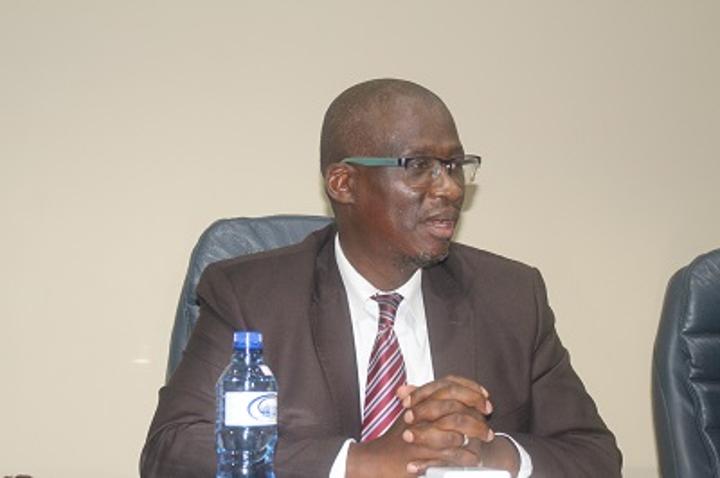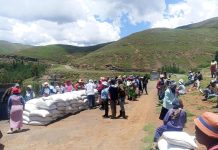Africa-Press – Lesotho. Lesotho will today engage in Cyber security Maturity Model (CMM) for nations in a hybrid international workshop that will run until Thursday. This was revealed by the Minister
of Communications, Science and Technology Hon Tsoinyane Rapapa at the press conference last week. Cyber security is a specialized discipline focused on ensuring that the transmitted
information can effectively be kept secure. It encompasses the safeguards and processes applied to securing not only physical or personal assets but also
digital ones. The Ministry of Communications, Science, and Technology together with the Lesotho Communications Authority (LCA) have identified the relevant stakeholders to participate in the
CMM which are; Academia, Civil Society Groups, and Internet Governance Representatives Universities, Criminal Justice and Law Enforcement, Defense and
Intelligence Community, Government Ministries, Legislators/ Policy owners, Parliamentarians, Computer Security Incident Response Team (CSIRT) and Information
Technology (IT) Leaders from Government and the Private Sector, Critical National Infrastructure, Private Sector and Business, and International Cooperation.
Speaking at the press conference, Rapapa informed that the CMM is a framework to facilitate the assessment of the maturity of a country’s cyber security capacity.
He added that the CMM reviews cyber security capacity across five dimensions; Cyber security Policy and Strategy; Cyber Culture and Society; Building Cyber
security Knowledge and Capabilities; Legal and Regulatory Frameworks and Standards and Technologies. “Lesotho has no cyber security strategy or policy, no incident management capabilities and lacks knowledgeable
people in cyber security issues including within law enforcement and legal institutions. In order for Lesotho to be certain about the current status quo, it is
important to have an assessment, which will identify the gaps, and pave the way forward,” Rapapa explained. He pointed that Lesotho has engaged the Cyber security
Capacity Centre for Southern Africa (C3SA) at the University of Cape Town which is working in collaboration with the Global Cyber Security Capacity Centre
(GCSCC) at the University of Oxford. These, he said are the leading research centres for effective cyber security capacity building across the world,
promoting an increase in the scale, pace, quality, and impact of cyber security capacity-building initiatives globally. Rapapa highlighted that deploying the CMM involves data gathering through in-country stakeholder consultation (typically over the course of three days). Its aim is to produce an evidence-based report, which will include recommendations to: benchmark the maturity of a country’s cyber security capacity, detail a pragmatic set of actions to contribute to the advancement of cyber security capacity maturity
gaps and identify priorities for investment and future capacity building. According to Rapapa, government leaders are increasingly aware that promoting prosperity and protecting national security includes providing cyber security that means demonstrating that a nation, state, region or city is a safe place to live and do business online. He added that these include deterring cyberattacks, preventing cyber-related crime, and protecting critical national infrastructure
while also maintaining an environment that makes technological progress easy. Rapapa informed that the world today has turned digital to facilitate people’s work
lives, personal lives, and finances have gravitated towards the world of the internet, mobile computing and electronic media. He expressed that unfortunately this rapid rate of progression has led to the emergence of data security concerns and crimes, in response to these issues a corresponding science of cyber
security was developed. He added that people, companies, organisations, governments, and nations are more vulnerable than ever to these malicious attacks, invasions of privacy, fraud, and other such unpleasant activities.
For More News And Analysis About Lesotho Follow Africa-Press






